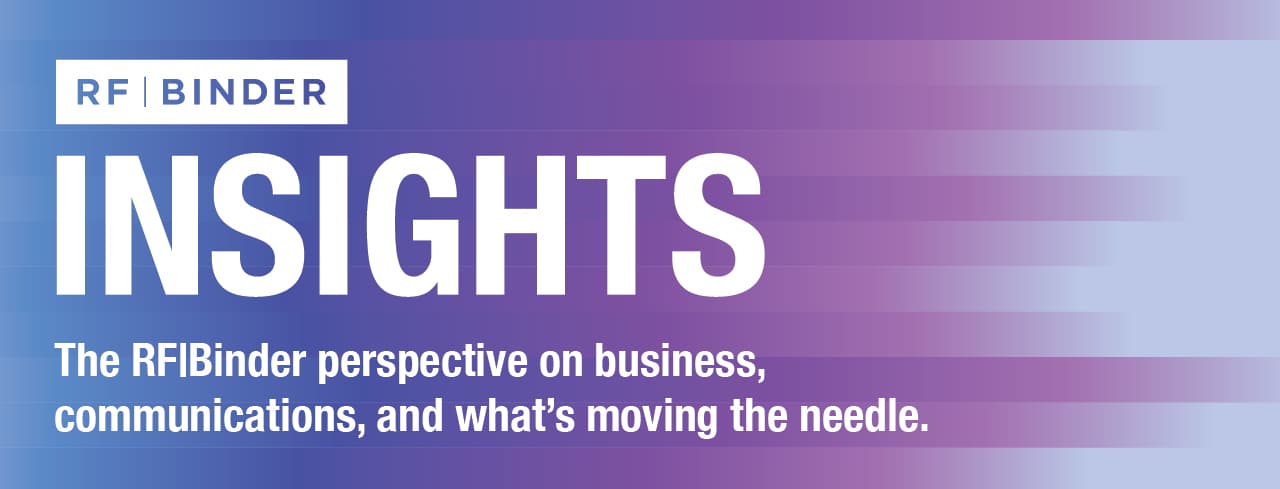Amid stepped-up attacks on ESG, companies are avoiding or downplaying the term even as they continue to lean into their strategies and programs.
This blog has chronicled the politicization of the ESG theme over the last few years, suggesting ways that corporations and their brands can address the resulting communications challenges. Now there’s evidence that companies are indeed adapting positioning and messaging to deal with these attacks, which most observers expect to intensify as we head toward a general election in 2024.
A recent Conference Board survey of 125 leading companies found that: “Forty-eight percent of companies experiencing backlash have adjusted their ESG-related terminology, typically from ‘ESG’ – a term favored by investors – to ‘sustainability’ (a term that may be better understood by employees, customers, and the public).”
That makes sense, but corporate management should take care with this approach. Companies need to continue to communicate regularly and convincingly on their progress on all ESG’s pillars even if they forego using the term. And most importantly they need to ensure that the communications reflect how ESG is being incorporated into their business strategy. A recent HBR article, by Robert G. Eccles and Alison Taylor commented, “Now, however, some CSOs have moved away from a role centered on messaging and instead are spearheading the true integration of material ESG (environmental, social, and governance) issues into corporate strategy.” It is interesting to note that Robert Eccles was the founding chairman of SASB, which has since its launch championed the importance of ESG reporting. He certainly has seen the evolution of how corporations have been responding to the growing interest in ESG.
It would be a mistake, in our view, if companies’ pivot results in narrower or less frequent communication on topics such as inclusion, employee development, community engagement, supply chains and other issues not as directly associated with the notion of sustainability.
In other words, companies may be tempted to focus their sustainability communications on investors, ESG rating agencies and regulators, and cut back on the “social” topics that have drawn more backlash. While we understand the pressure to do this given the growing focus on “materiality” and moves to make sustainability reporting part of the regulatory regime, we don’t think it is the right solution to the current challenges.
While the term ESG may be increasingly out of favor, the strategic objectives are as important as ever from the standpoint of competition and long-term value creation. To this end, we believe the attacks on ESG offer business leaders an opportunity and strong incentive to do a comprehensive review of their organization’s communications strategy and the role ESG topics play within it. The question for company leadership is, as always, “Do we have an integrated, clearly expressed communication strategy about sustainability, our culture and our commitment to communities that effectively reaches all our key audiences? And does this strategy truly reflect what we are doing in our day-to day- operations.”
McDonald’s offers an example of how companies are subtly adjusting their use of ESG while continuing to communicate a commitment to their principles. A Bloomberg review of how the company is approaching this issue is quite revealing. It noted that recent references to ESG have been removed from the fast-food chain’s web pages. One page previously titled “ESG Approach and Progress” now just reads “Our Approach and Progress.” The remaining text remains largely unchanged. Similarly, another page previously titled “Performance & ESG Reporting” now says “Goal Performance & Reporting.” In the text, the phrase “environmental and social issues” has replaced the ESG abbreviation.
When queried by Bloomberg, McDonald’s declined to comment on the changes to its website pages. But it affirmed its commitment to reporting annually on social and environment goals.
That commitment comes through in McDonald’s “Impact Report” for 2022-23, which our review shows also makes judicious use of the term ESG. The abbreviation appears in only six places in the 71-page document. Three of the references are in passages on governance, describing management and board engagement. The three remaining references come in sections that address business risks.
In effect, McDonald’s has retained limited use of the ESG term for discussing issues most relevant to investors, ESG ratings providers, lenders, insurers, and regulators. But what is important to understand is that at the same time the company continues to communicate broadly to all its stakeholders on sustainability issues as well as its commitment to inclusion, employee development and other “social” topics.
With about 200,000 direct employees worldwide (not including 2 million who work for franchise holders), McDonald’s is signaling its continued commitment to the principles of ESG, recognizing the important role they play in their overall corporate strategy.
There have been many times in recent history when use of certain words has come in and out of fashion. Regardless of the words or terminology that a company uses, it is critical that companies continue their commitments in each area – the environment, social programming, and governance in their organization. Equally important is to track progress against set goals and report on progress being made. What is fundamental is if a company doesn’t effectively integrate these strategies into their operating model and communicate the commitment and progress with clarity, they are opening themselves up questions about the seriousness of their commitments.

